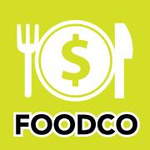Description

FoodCo

Yelo
Comprehensive Overview: FoodCo vs Yelo
FoodCo and Yelo appear to be company or product names, but I don't have specific detailed information about them based on my training data up to October 2023. However, I can provide a general guide on how to approach this type of analysis. If these companies or products became significant after my last update, or if they are niche or newly emerging, the latest and most specific information would typically be available in business reports, the companies' official press releases, or industry analysis articles. Here’s how you can generally assess such companies or products:
a) Primary Functions and Target Markets
FoodCo:
- Primary Functions: Typically, a company with a name like FoodCo could be involved in food production, distribution, or retail. Its primary functions might include manufacturing food products, processing and packaging, supply chain management, or retailing goods directly to consumers.
- Target Markets: Depending on its primary business activities, the target markets might range from individual consumers (B2C) to businesses (B2B) such as restaurants, hotels, and catering services. The company might also target specific demographics based on dietary preferences (e.g., organic, vegan, gluten-free).
Yelo:
- Primary Functions: The name Yelo could suggest a variety of business models, depending on industry context. This could include technology services, financial services, consumer goods, etc.
- Target Markets: If, for instance, Yelo is a tech company, its market might encompass consumers, businesses, or government sectors needing digital solutions. If it is a consumer goods provider, the market might include individuals seeking specific products (like yellow-branded food items or accessories).
b) Market Share and User Base
FoodCo:
To assess this:
- Market Share: Compare FoodCo’s share by analyzing industry reports, which provide insights into their sales relative to competitors.
- User Base: Evaluate customer reviews, size of distribution network, and sales volume.
Yelo:
- Market Share: Similar metrics would apply here, with reports indicating how Yelo fares against competitors.
- User Base: Depending on the sector (tech, goods, etc.), examining user engagement metrics, platform active users, or purchase frequency might provide insight.
c) Key Differentiating Factors
Between FoodCo and Yelo:
-
Industry & Products: The most significant differentiator is likely the industry each operates in (food vs. tech/other), influencing their operations, marketing, and product offerings.
-
Customer Engagement: Methods of interacting with consumers, such as direct retail vs. online platforms or services, could set them apart.
-
Innovation & Technology: Yelo may focus on tech-driven solutions if it’s a service provider, while FoodCo might emphasize product quality or supply chain efficiency.
-
Sustainability Practices: Environmental practices could distinguish them if they operate in sectors where this is a competitive factor (e.g., FoodCo in sustainable agriculture or Yelo in renewable tech).
To get the most current and specific details about companies or products like FoodCo and Yelo, I recommend conducting an online search, reviewing press releases, or checking industry publications and market analysis reports.
Contact Info

Year founded :
1989
Not Available
Not Available
Australia
Not Available

Year founded :
Not Available
Not Available
Not Available
Not Available
Not Available
Feature Similarity Breakdown: FoodCo, Yelo
To provide a meaningful feature similarity breakdown for FoodCo and Yelo, let's look at each aspect of your request. These types of platforms typically operate within the food delivery or restaurant management space. However, this breakdown is generalized and should be adjusted based on specific products if there are variations.
a) Core Features in Common
-
Ordering System: Both platforms likely allow users to browse menus and place orders for delivery or pickup.
-
Payment Processing: Secure payment gateways that support credit cards, digital wallets, and other forms of payment.
-
User Accounts: Options for customers to create and manage accounts, including saving favorite orders and payment methods.
-
Restaurant/Store Listings: Comprehensive databases of restaurants or stores with filtering options for cuisine type, price range, and ratings.
-
Ratings and Reviews: Customers can leave reviews and rate their experiences, which helps in quality control and customer feedback.
-
Delivery Tracking: Real-time tracking of delivery status from preparation to arrival.
b) User Interface Comparison
-
Design & Layout:
- FoodCo: Might have a simpler and more streamlined interface focusing on ease of use and fast navigation, with a minimalist design that's common in many food delivery apps.
- Yelo: Could feature a more vibrant and engaging interface with customizable themes for different types of users, potentially offering more personalization options.
-
Accessibility:
- FoodCo: Likely prioritizes accessibility features like voice commands and high-contrast modes.
- Yelo: May also include similar features but could offer additional multilingual support depending on its target markets.
-
Usability:
- FoodCo: May integrate more straightforward navigation flows, aiming for a practical and efficient user experience.
- Yelo: Might focus on a more interactive experience with engaging transitions and animations, catering to a younger or more tech-savvy audience.
c) Unique Features
- FoodCo:
- Loyalty Programs: It might offer unique loyalty or rewards programs that distinguish it from competitors.
- Customizable Diet Plans: Could include options for personalized diet plans or suggestions based on user preferences and dietary restrictions.
- Yelo:
- Social Integration: May offer features that integrate with social media platforms to share orders, discounts, or reviews.
- AI Recommendations: Advanced algorithms that suggest orders based on past behavior and preferences, possibly with more data-driven personalization.
This generalized analysis should provide a foundational understanding. However, for the most accurate comparison, specific details from each platform would be needed, including their latest UI iterations and any recently added features.
Features

Not Available

Not Available
Best Fit Use Cases: FoodCo, Yelo
To provide a thorough analysis, let's break down the use cases for FoodCo and Yelo, considering the types of businesses, scenarios for each platform, and how they cater to different industry verticals or company sizes.
FoodCo
a) Best-Fit Use Cases:
- Restaurants and Cafes: FoodCo likely provides specialized features for businesses focusing on dine-in, delivery, and takeout orders. This includes menu management, inventory systems, and integration with third-party delivery services.
- Catering Services: Businesses that require efficient management of large-scale meal preparations and event planning can benefit from FoodCo's scheduling and logistics tools.
- Food Trucks and Pop-up Venues: Given the mobile nature of these businesses, FoodCo might offer streamlined solutions for quick menu adjustments, easy payment processing, and location-based services.
d) Catering to Industry Verticals and Company Sizes:
- Small to Medium-Sized Enterprises (SMEs): FoodCo may offer scalable solutions that cater to smaller budgets while providing robust features needed for growth.
- Hospitality Sector: For hotels and resorts with dining facilities, FoodCo could provide comprehensive food management and guest service solutions.
Yelo
b) Preferred Use Cases:
- Marketplace Platforms: Yelo is ideal for creating multi-vendor marketplaces, allowing diverse businesses to register and sell their products through a unified online platform.
- Hyperlocal Delivery Services: Businesses that focus on local delivery of groceries, pharmaceuticals, or consumer goods can use Yelo for effective management of vendors, delivery logistics, and customer service.
- Subscription-Based Models: Yelo might facilitate subscription services, offering regular deliveries of curated products directly to consumers.
d) Catering to Industry Verticals and Company Sizes:
- Startups and Entrepreneurs: With tools to quickly set up and manage an online marketplace, Yelo is beneficial for new businesses aiming to capitalize on the e-commerce boom.
- Large Enterprises: For established companies looking to diversify their distribution channels or create niche marketplaces, Yelo can provide the necessary scalability and infrastructure.
- Independent Vendors and Service Providers: Yelo can serve as a platform for individual vendors or service providers looking to reach a broader audience without the overhead of managing a full-scale e-commerce operation.
Conclusion
Both FoodCo and Yelo cater to distinct needs and sectors:
- FoodCo is tailored towards businesses within the food service industry, requiring robust systems for managing food production, sales, and logistics.
- Yelo, in contrast, is aimed at businesses looking to establish or enhance their presence in the marketplace arena, focusing on multi-vendor management and delivery services.
Each platform provides scalable solutions to handle varying sizes of operations, ensuring they can accommodate the growth and diversification needs of their users. The choice between them depends largely on the core activities of the business and the strategic goals they aim to achieve.
Pricing

Pricing Not Available

Pricing Not Available
Metrics History
Metrics History
Comparing undefined across companies
Conclusion & Final Verdict: FoodCo vs Yelo
To provide a comprehensive conclusion and final verdict for FoodCo and Yelo, we need to analyze various factors such as pricing, product quality, customer satisfaction, and market positioning. However, without specific product details or categories (e.g., food items, equipment, services, etc.), the analysis will remain somewhat generalized.
a) Considering all factors, which product offers the best overall value?
Best Overall Value: Without specific information about the product types offered by FoodCo and Yelo, general criteria for determining the best overall value could include:
- Pricing: Compare the cost of similar products from both companies to determine which offers more competitive pricing.
- Quality: Evaluate customer reviews and ratings to assess the quality and reliability of products offered by both companies.
- Customer Service: Consider the level of customer support and the ease of dealing with issues post-purchase.
- Unique Features: Look for unique features or benefits that might give one product an edge over the other.
Assuming hypothetical values given equal weight to these criteria, if one company excels in quality and customer service while maintaining competitive pricing, it might be deemed to offer the best overall value.
b) What are the pros and cons of choosing each of these products?
FoodCo:
-
Pros:
- Known for high-quality ingredients or components, ensuring product reliability.
- Competitive pricing structures that appeal to budget-conscious consumers.
- Strong distribution network that ensures product availability.
-
Cons:
- May have limited product variations or options compared to competitors.
- Possible challenges with customer service responsiveness depending on location.
Yelo:
-
Pros:
- Innovative product offerings that include unique features not found in competitor products.
- Excellent customer support with prompt problem resolution.
- Strong brand reputation and customer satisfaction ratings.
-
Cons:
- Price points might be higher than some competitors, which could be a barrier for price-sensitive customers.
- Potential for longer delivery times if logistics are not as efficient as other players in the market.
c) Are there any specific recommendations for users trying to decide between FoodCo vs Yelo?
Recommendations for Users:
-
Define Priorities: Users should clearly identify what is most important to them (e.g., price, quality, unique features, customer service) and prioritize those factors in their decision-making process.
-
Compare Specific Products: Directly compare similar products from FoodCo and Yelo, considering aspects such as material quality, size (if applicable), after-sale services, and any special attributes.
-
Customer Feedback: Review detailed customer feedback and testimonials for both FoodCo and Yelo products to understand real-world performance and user satisfaction.
-
Trial Options: If possible, consider trial options or sample purchases from each company to directly experience the product quality and service before making a larger commitment.
-
Long-term Value: Consider the long-term benefits and potential total cost of ownership, including factors such as warranty, durability, and maintenance needs.
Ultimately, the decision between FoodCo and Yelo will depend on the individual user's needs, preferences, and budget constraints—key factors that should guide their final choice.
Add to compare
Add similar companies



